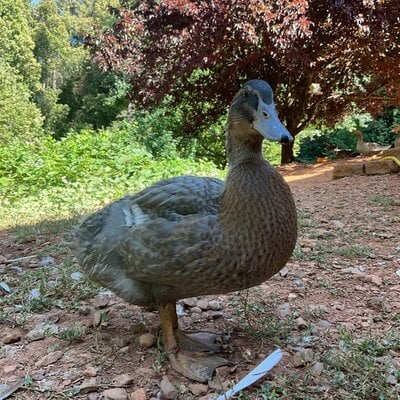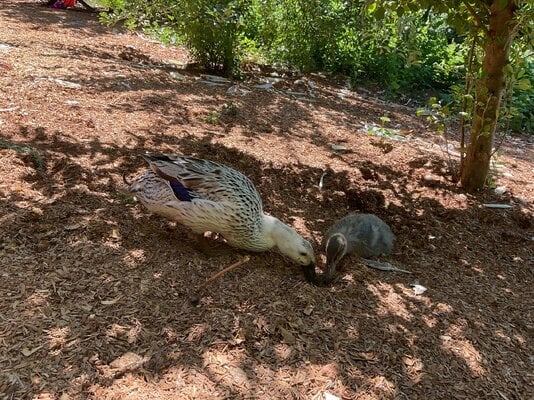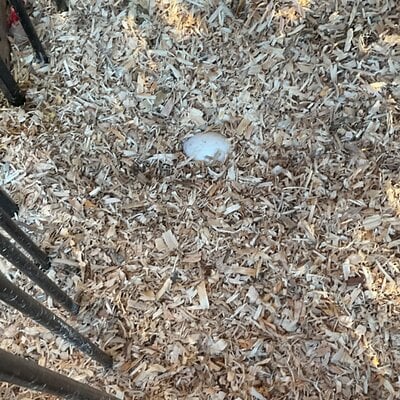Bramble is an almost six week Welsh Harlequin cross with either a Buff or a Cayuga buff cross. I’m usually correct when vent sexing goslings but I have zero percent accuracy with vent sexing ducklings so I knew I probably was wrong with Bramble but Bramble appeared to be a female at first.
After about two weeks Bramble began to exhibit some behaviors I saw in my confirmed female ducklings, making a “hurrrr” sound and grabbing my hand to tuck it under her while napping on my lap.
Close to the end of week four I noticed some vocal changes, Bramble’s had a hint of a nasally element so I began to suspect Bramble may be male.
Bramble’s voice has gotten more nasally so I think Bramble is definitely a drake…..however Bramble has only gotten more “broody.” Bramble even plops down on his mom’s eggs at least twice a day to scoot his little feet around the nest and then bury the eggs when he’s done playing “mom” with them which is surprising for a duckling his age let alone a drake.
Anyone else seen this kind of behavior in a little drake?
This is Bramble.

Bramble and his mom “Bee.” Don’t let her drake feather fool you, Bee is elderly and has been experiencing hormonal issues since the beginning of this year, I’m actually surprised that not only is she not sterile, but that she managed to hatch Bramble and then go back to laying two days after she hatched Bramble after brooding his egg for 29 days. Weirdness must run in the family?

After about two weeks Bramble began to exhibit some behaviors I saw in my confirmed female ducklings, making a “hurrrr” sound and grabbing my hand to tuck it under her while napping on my lap.
Close to the end of week four I noticed some vocal changes, Bramble’s had a hint of a nasally element so I began to suspect Bramble may be male.
Bramble’s voice has gotten more nasally so I think Bramble is definitely a drake…..however Bramble has only gotten more “broody.” Bramble even plops down on his mom’s eggs at least twice a day to scoot his little feet around the nest and then bury the eggs when he’s done playing “mom” with them which is surprising for a duckling his age let alone a drake.
Anyone else seen this kind of behavior in a little drake?
This is Bramble.

Bramble and his mom “Bee.” Don’t let her drake feather fool you, Bee is elderly and has been experiencing hormonal issues since the beginning of this year, I’m actually surprised that not only is she not sterile, but that she managed to hatch Bramble and then go back to laying two days after she hatched Bramble after brooding his egg for 29 days. Weirdness must run in the family?

Last edited:







